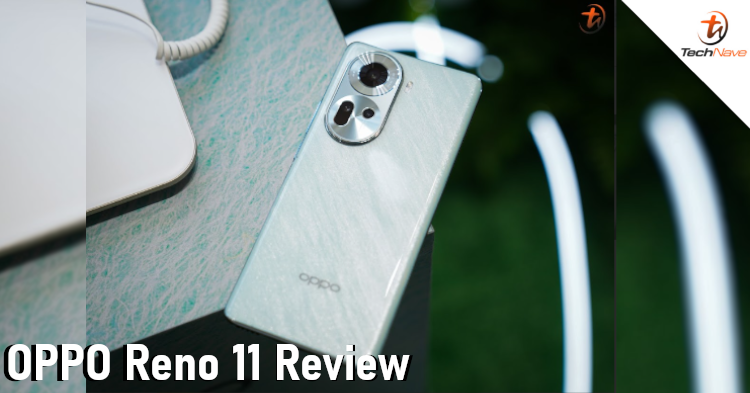
Previously, we covered the OPPO Reno 11 Pro 5G and shared our thoughts about the phone. You might wonder, what about the vanilla unit? We had the OPPO Reno 11 for over 2 weeks and this is what we think about it. If you are planning to get it, you might want to read until the end.
Design - Almost identical to the Pro model, which is good
This phone comes in 2 colours - Wave Green and Rock Grey. As for this review, we received the Wave Green model. This variant sports a light green matte finish and a triple primary camera on the back panel. Interestingly, there are two camera islands at the back.
One camera island hosts the big round-shaped main camera, while the other houses a pill-shaped camera and a small circular camera. Besides the camera shapes and placements, there are no significant differences from the pro variant.
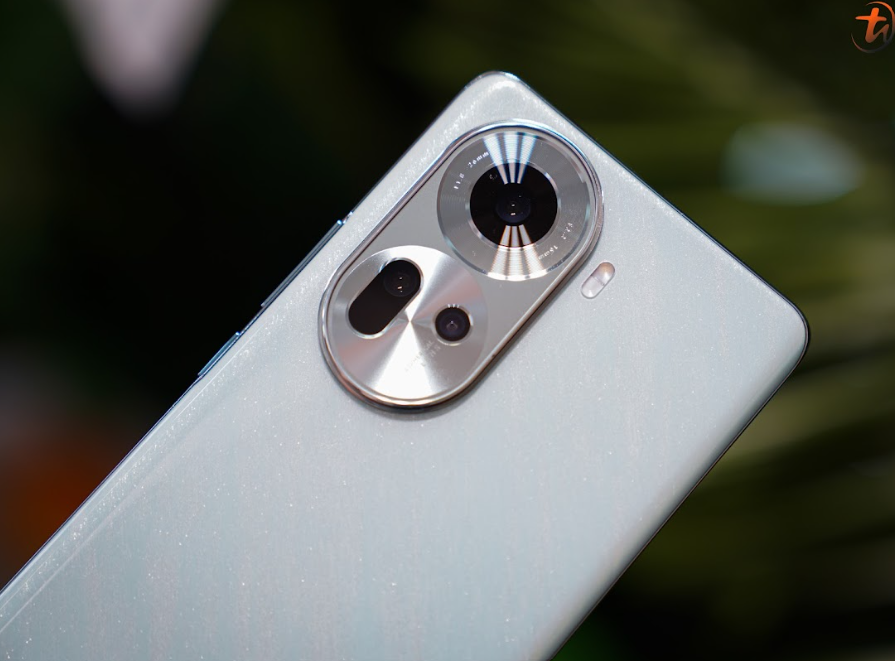
Almost identical to the Reno 11 Pro
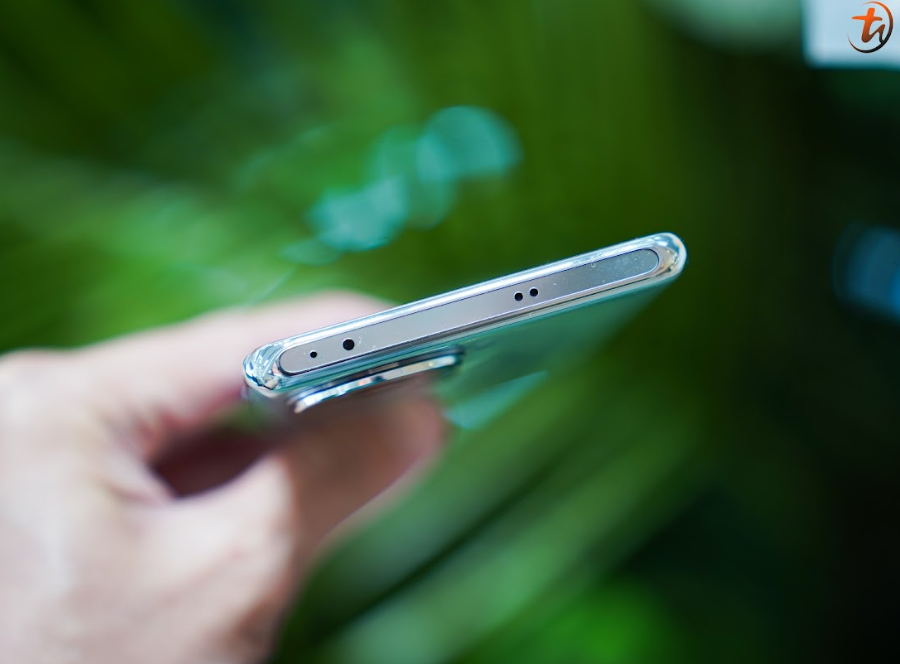
Speaker on the top panel
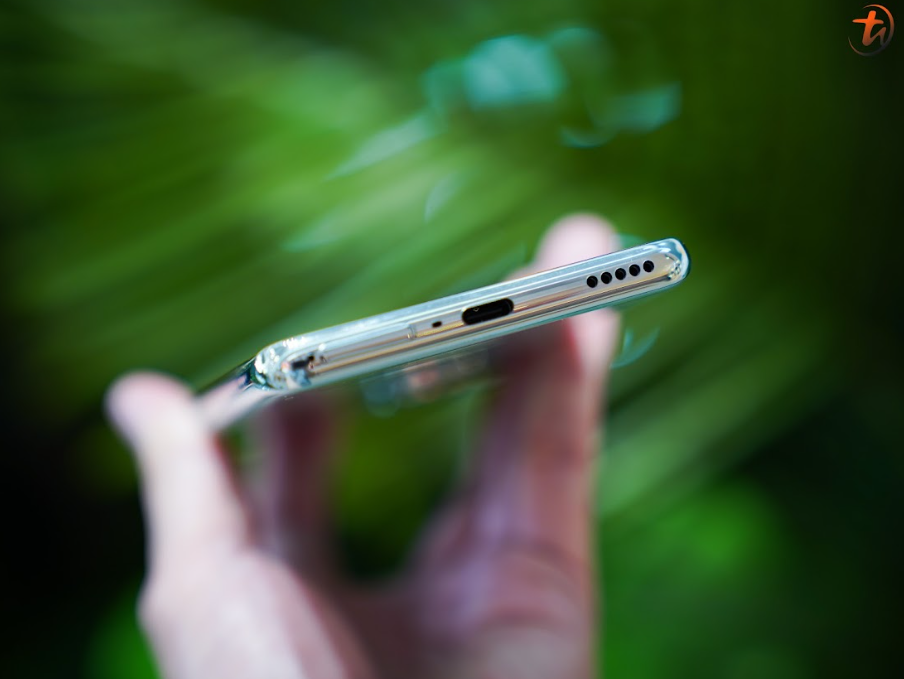
Speaker and USB-C port at the bottom panel

Audio and Power buttons on the right side of the phone
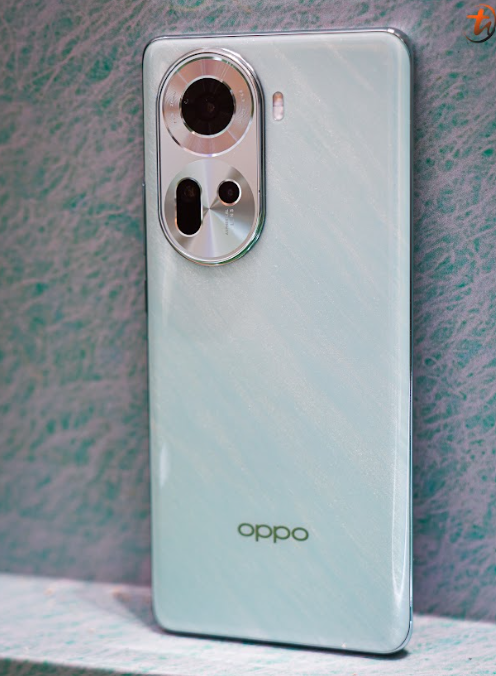
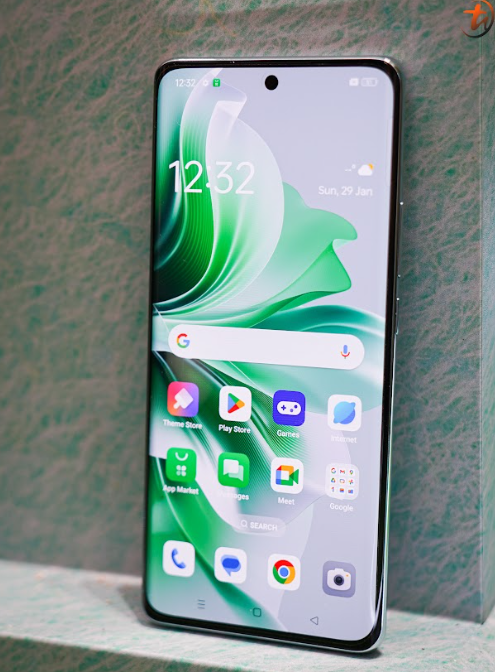
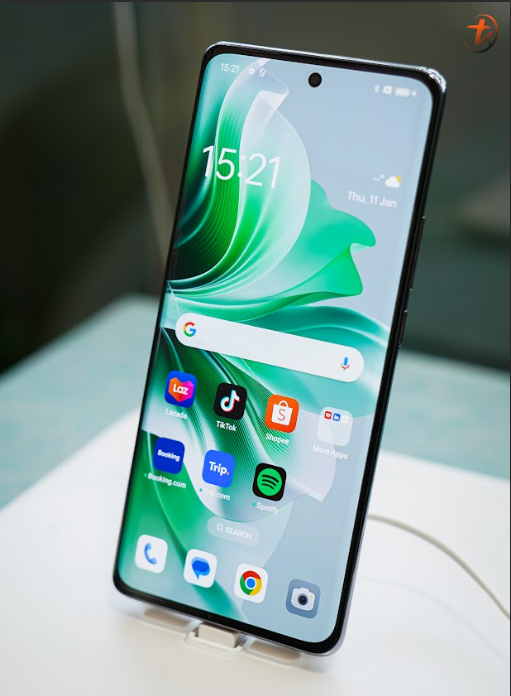
Sleek and neat, the way we like it
If our review of the Reno 11 Pro was anything to go by, you would know that we loved the design and its premium feel. The same can be said about this phone. It's neat, sleek and practical. However, some people might not like the audio and power buttons on the same side of their phone. But that's more of a preference than a concerning issue.
Tech specs and features - Great for casuals, competent for those who want productivity
- MediaTek Dimensity 7050
- Octa-core processor (2x2.6 GHz Cortex-A78 & 6x2.0 GHz Cortex-A55)
- Mali-G68 MC4 GPU
- 12GB RAM, 256GB storage
- No external storage
- Android 14, ColorOS 14
- 4800 mAh, 67W wired, PD, QC3, 1-50% in 19 min (advertised)
- Display size: 6.7 inches, 1080 x 2412 pixels, 20:9 ratio (~394 ppi density)
- OLED, 1B colours, 120Hz, HDR10+, 800 nits (HBM), 950 nits (peak)
- Primary camera: Triple: 50 MP, f/1.8, 26mm (wide), 1/1.95", PDAF, OIS +32 MP, f/2.0, 47mm (telephoto), 1/2.74", 0.8µm, PDAF, 2x optical zoom + 8 MP, f/2.2, 16mm, 112˚ (ultrawide), 1/4.0", 1.12µm
- Front camera: 32 MP, f/2.4, 22mm (wide), 1/2.74", 0.8µm, AF
- Fingerprint sensor (under display, optical), accelerometer, gyro, proximity, compass)
OPPO promises a vibrant screen with a 120Hz refresh rate and 1.07 billion colours. Based on our experience with the phone, their words do have merits. Even under bright sunlight, we can still visibly view the phone's screen effortlessly. We also had an enjoyable streaming experience with this phone.
However, the noticeable downside to this phone lies in its Mediatek Dimensity 7050 chipset. It's a bit too old for the current gen of smartphones. At the least, there are other better options for a device in this price range. Performance-wise, we found the phone lags at some random points. Fortunately, it doesn't happen often, but you can certainly tell when it does.
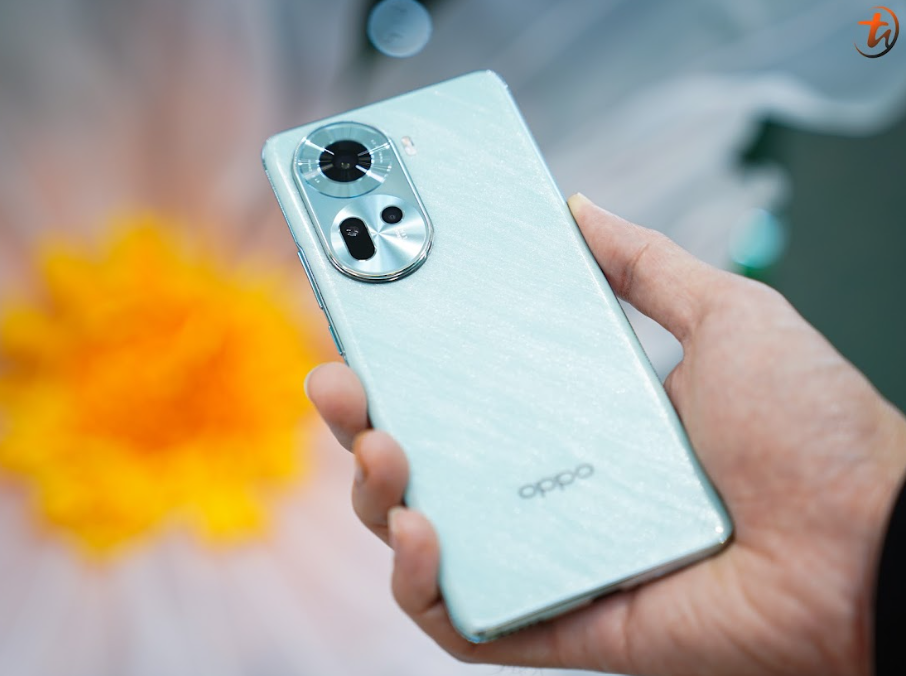
Easy to grip and hold
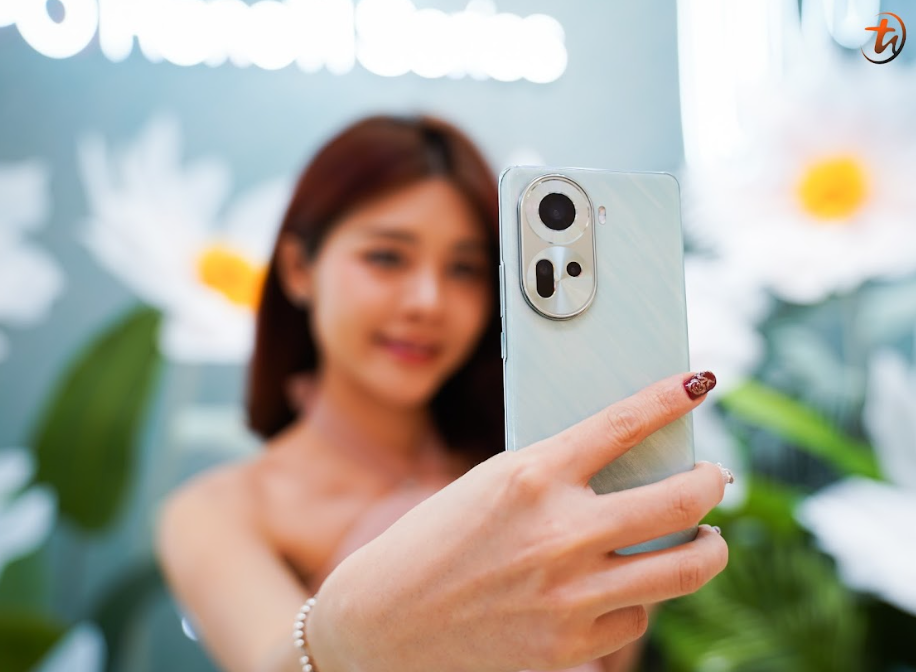
The battery should last you over 24 hours for casual usage
That said, the 12GB RAM and 256GB storage should serve your daily needs seamlessly. Thanks to the Color OS 14 (Android 14), this device offers an efficient working experience. Like the Reno 11 pro 5G, this phone features a healthy combination of security and productivity.
In addition, the dual-stereo speakers provided a decent listening experience for us. Thanks to its placements on the top and bottom panels of the phone, it offers a balanced sound displacement. We also appreciate the Ultra-Volume mode too. This is a super handy feature when you are talking on the phone in public without earbuds.

The Ultra-Volume mode works like a charm for us
However, we're not too sure how the phone's LinkBoost feature works. OPPO says it could improve your phone's signal reception by 44% up to 100% in Signal Transmission power. But it's quite difficult to prove this, given that we mainly used the phone in well-covered locations such as Kajang and Petaling Jaya. Regardless, we still appreciate this addition.
But it does not end there, as the Reno 11 sports a 4800mAh battery. Based on our experience, the phone lasted over 24 hours with casual use. Under intense usage (gaming and streaming included), the phone lasted over 16 hours. So, that should give you an idea of what to expect about this phone.
Interestingly, OPPO says the phone could reach 50% charge from 0% in 19 minutes. We decided to test this claim and unfortunately, it's not accurate. It took the phone 22 minutes to reach 50% charge. However, this phone could be an isolated case and other units might be able to perform as advertised. Either way, 50% in 22 minutes is still a respectable charging speed.
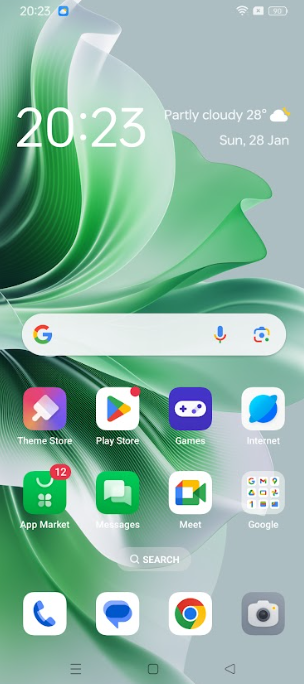
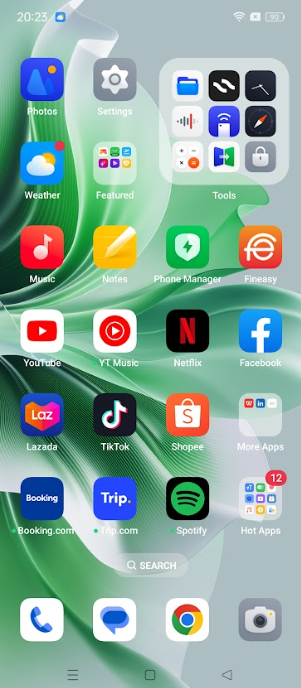
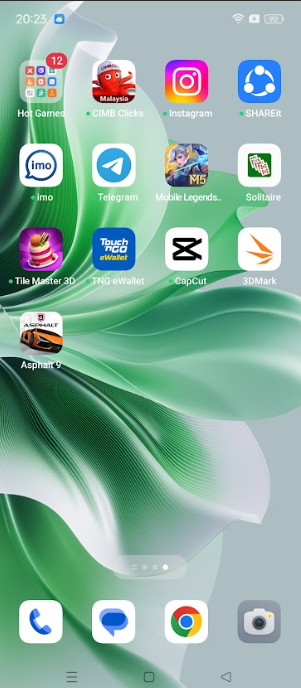
You can always customise the UI according to your preferences
Furthermore, the File-Dock feature is great for managing bloatware. Just like the Pro variant, this app helps you facilitate time-saving and quick access to images, text or files across various applications. It also supports the Smart Touch function, allowing you to easily capture images and text that could not be selected before. Simply swipe down with three fingers for a screenshot. Then, you can select images or text and move it to the file dock.
Performance - Respectable for a phone in its class
According to GeekBench 6, the phone scored 958 on the Single-Core test and 2346 on the Multi-Core test. It also scored 2360 on the CPU test. On the GPU end, this phone scored 2291 on the 3DMark app, which makes it better than 26% of other phones in the market. So, that should give you an idea of this phone's capabilities.
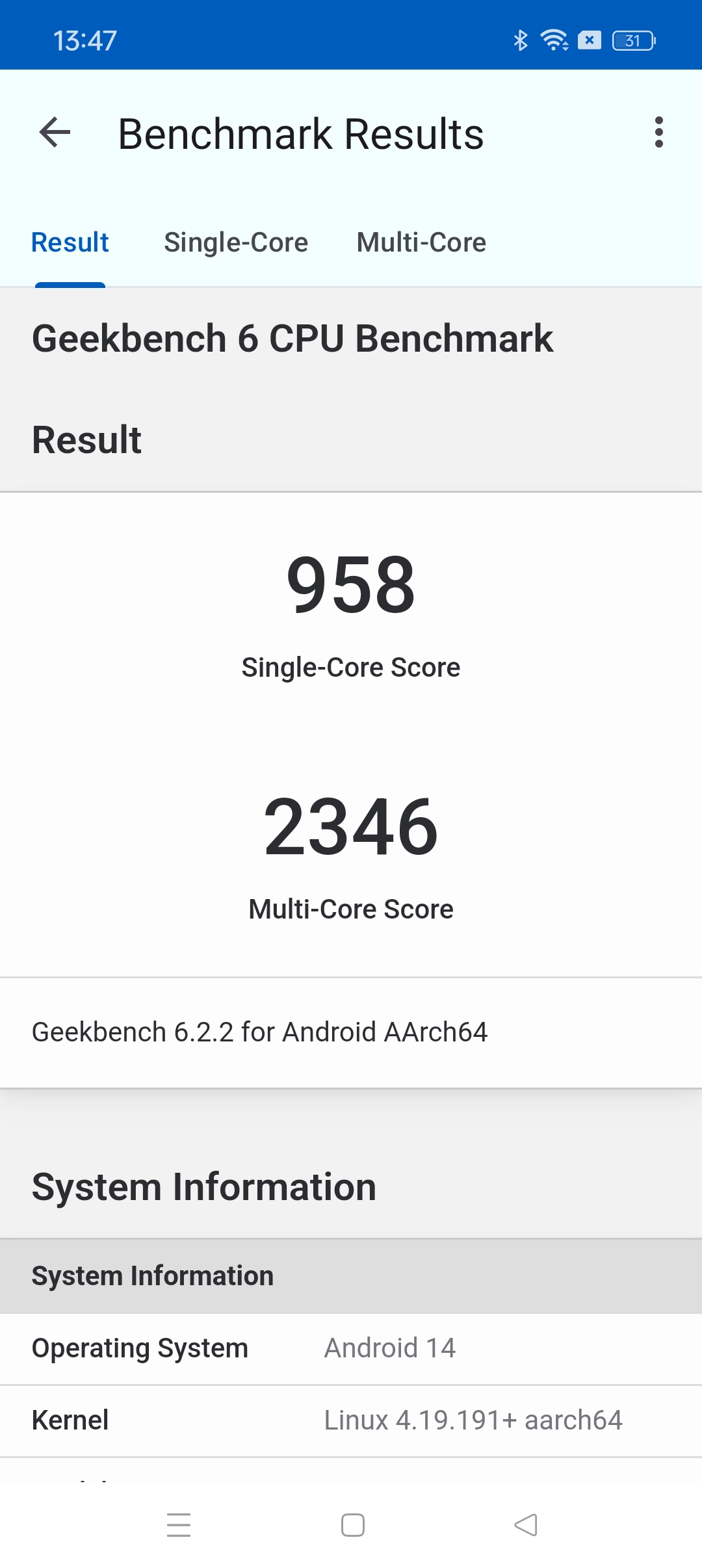
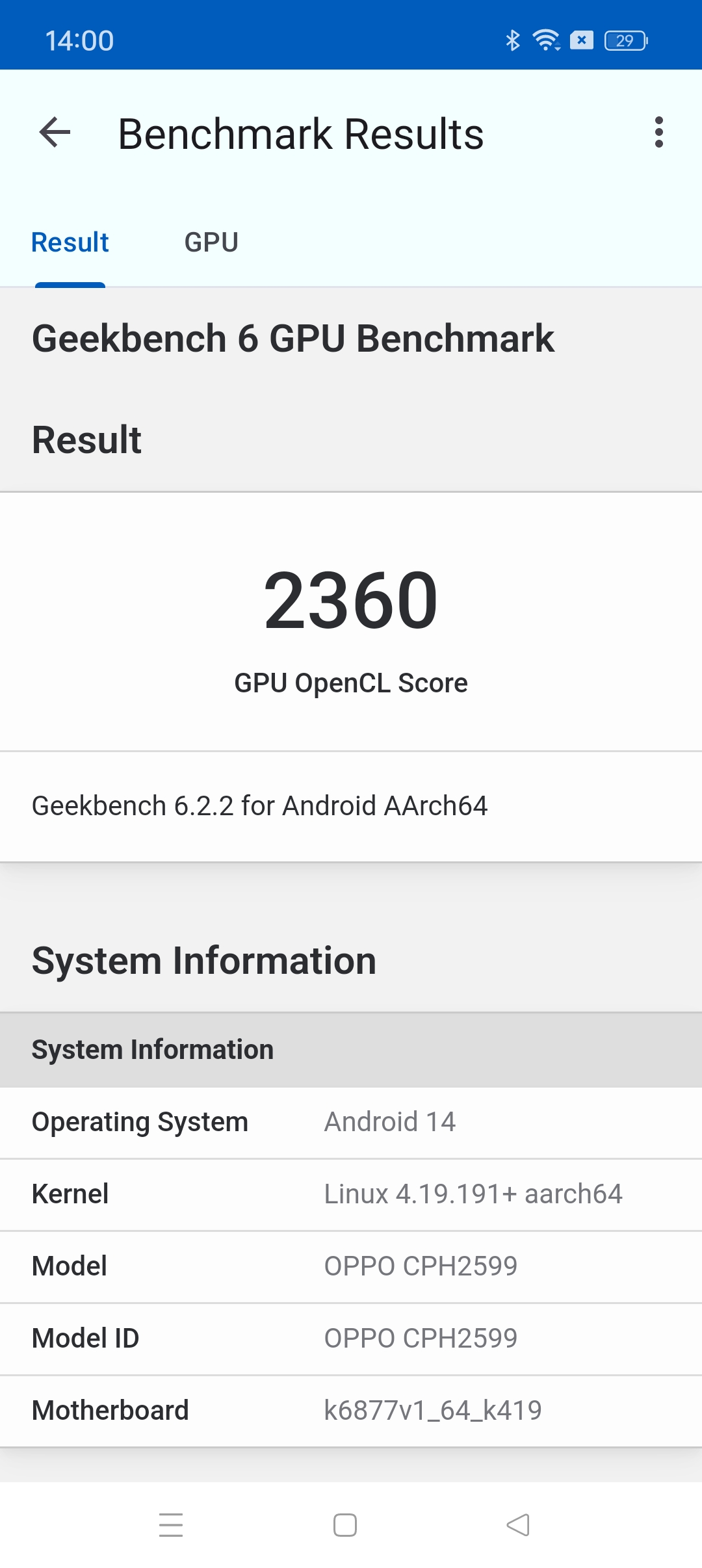
GeekBench 6 scores for the Single-Core, Multi-Core and GPU
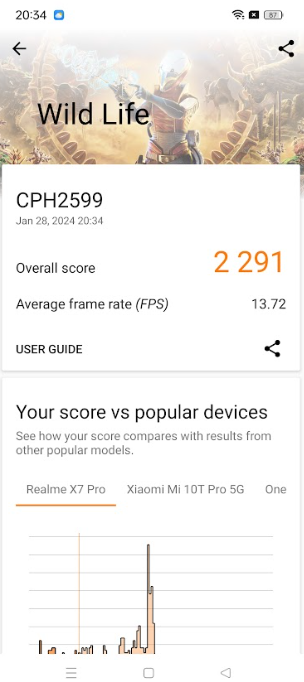
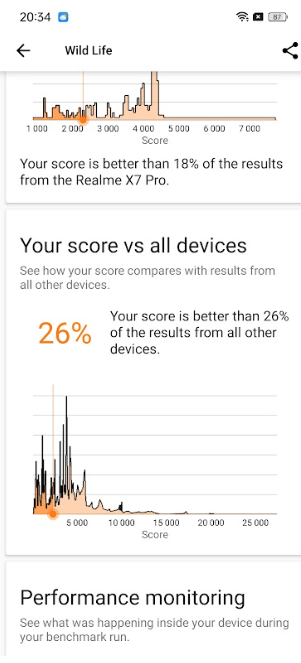
Scores based on 3DMark app
Gaming-wise, the phone offers a relatively smooth experience thanks to the 120Hz refresh rate. However, the screen does feel unresponsive at times. We experienced this issue when playing Mobile Legends. We are unsure if that's due to lag, but it's worth pointing out.
Graphic-wise, the game looked jaggy and box-ish when we played Asphalt 9. It is noticeable at times but shouldn't affect your gaming experience. If anything, we adore the colouration and the vibrant images that pop out of this game.
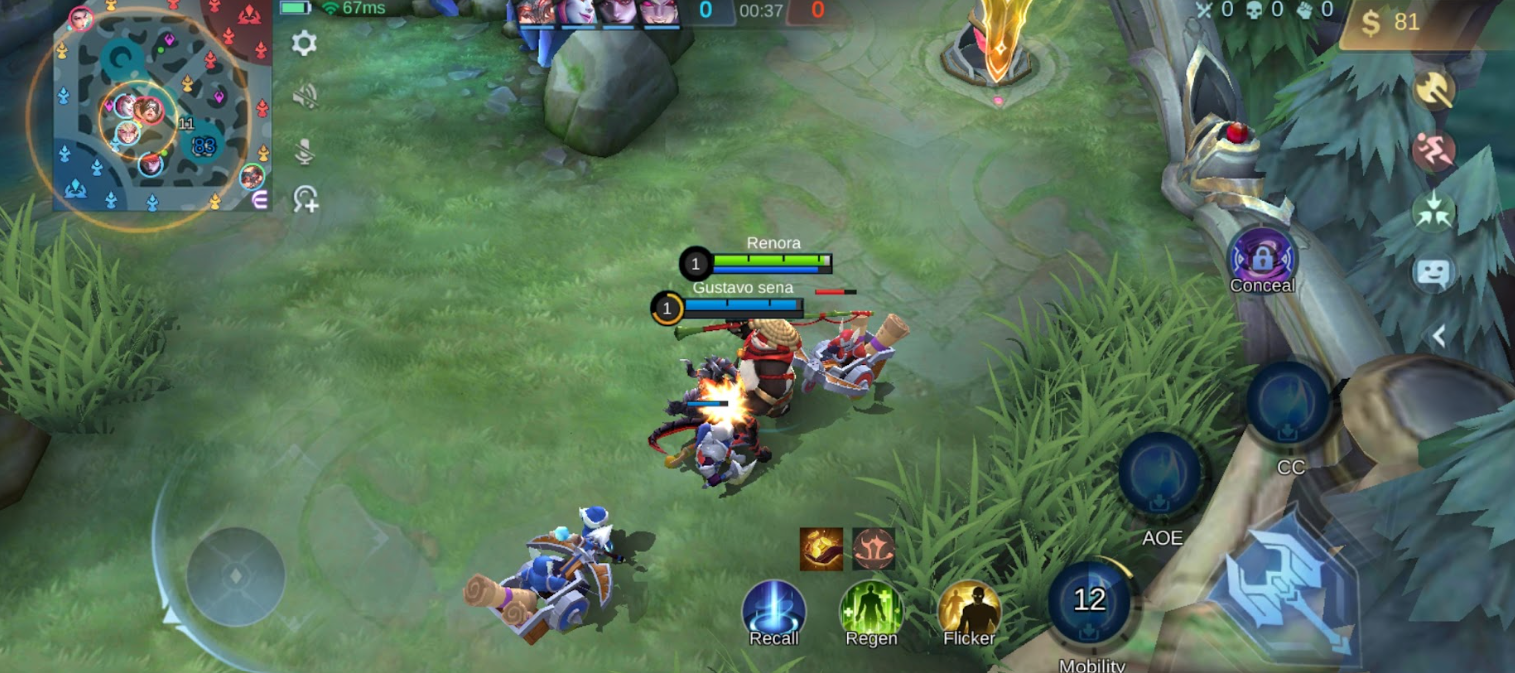
The screen can feel unresponsive at times
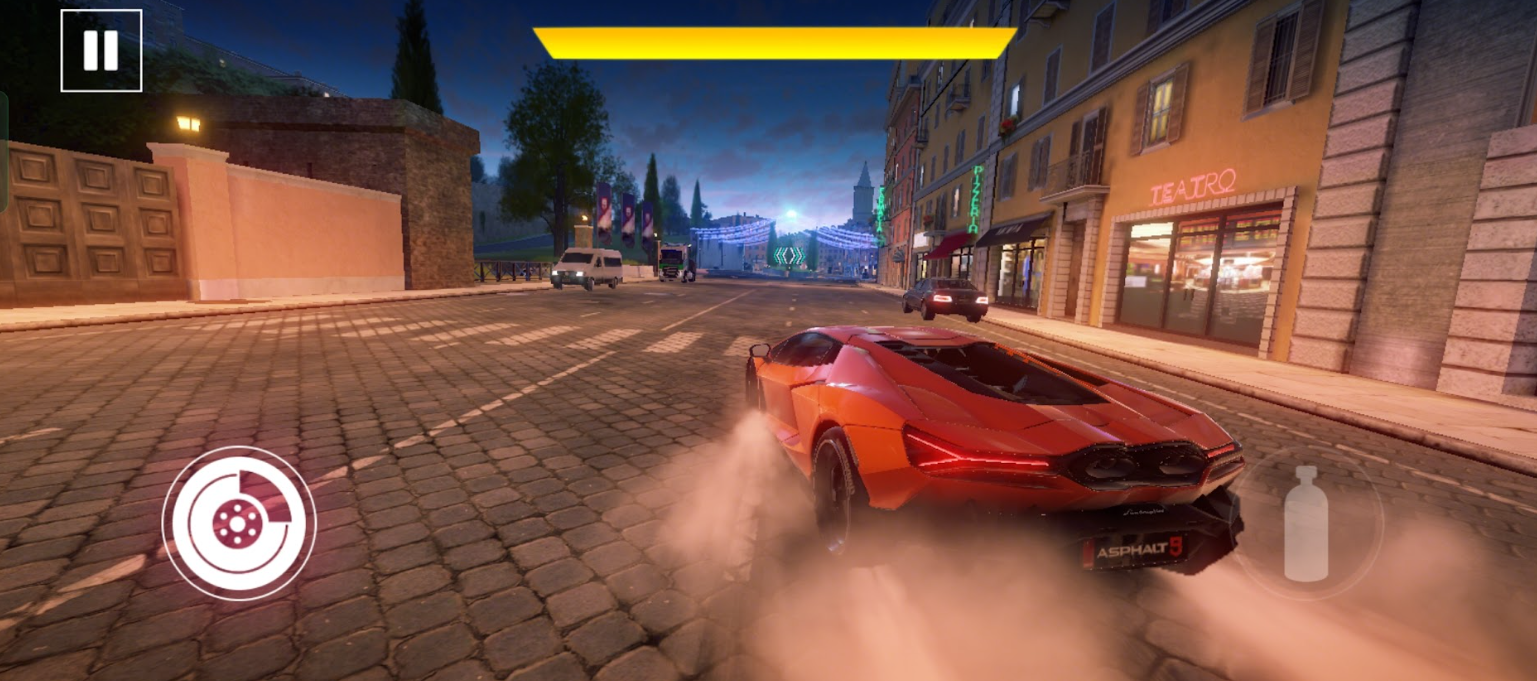
The graphics can appear jaggy or box-ish sometimes, but that shouldn't affect your gameplay
When it comes to the camera, the phone sports a 50MP primary camera with a 32MP snapper. We noticed that photos from the selfie camera look a bit artificial. But otherwise, we were relatively satisfied with the camera's quality. The phone did a great job bringing different colours to life, even with the Night mode.
Speaking of Night mode, the camera delivered a consistent and solid photography experience. Even in low-light settings, the camera captured realistic images. Sure, the phone struggles with moving objects at night. But the same can be said about other devices' cameras. Simply said, the camera did a solid job of minimising noises in the surroundings and subjects.


The Selfie quality was a bit artificial for our liking, but the portrait mode looks great

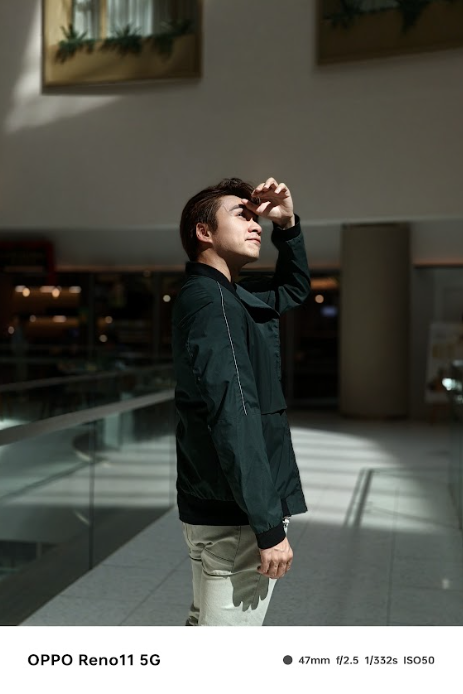
Low light? No problem

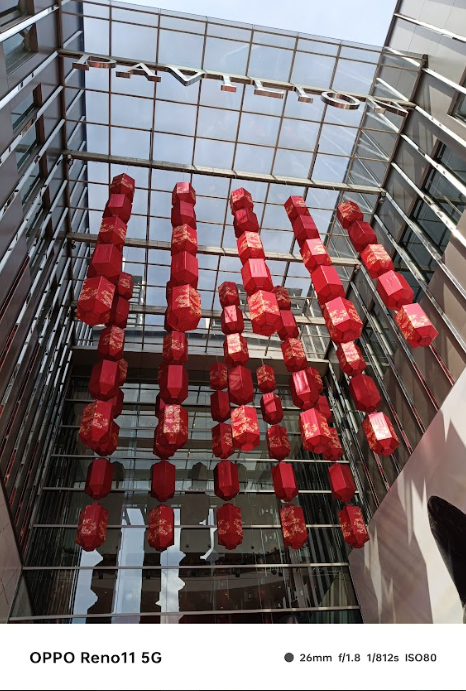
Look at those details
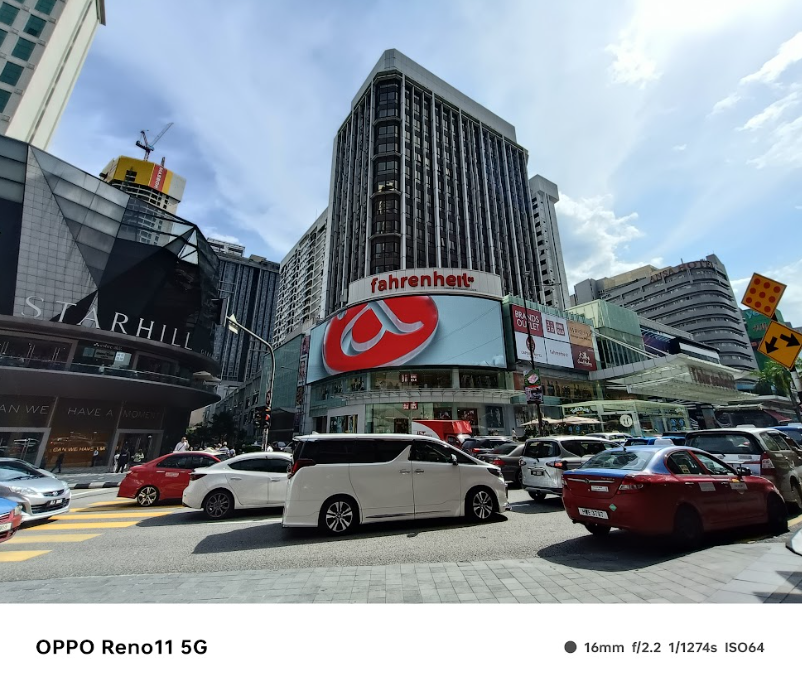
Looks pretty good
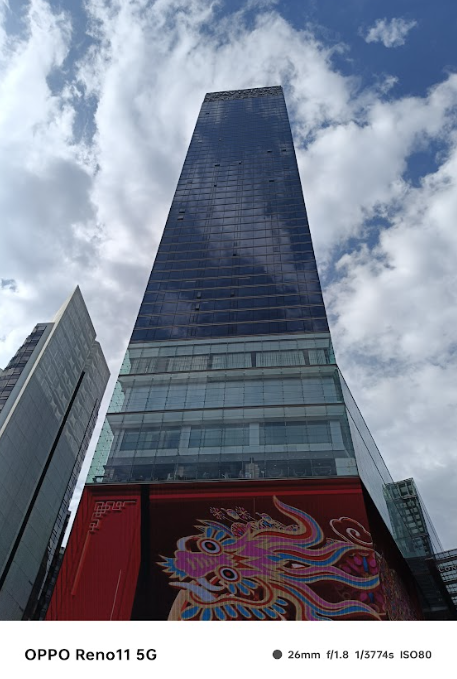
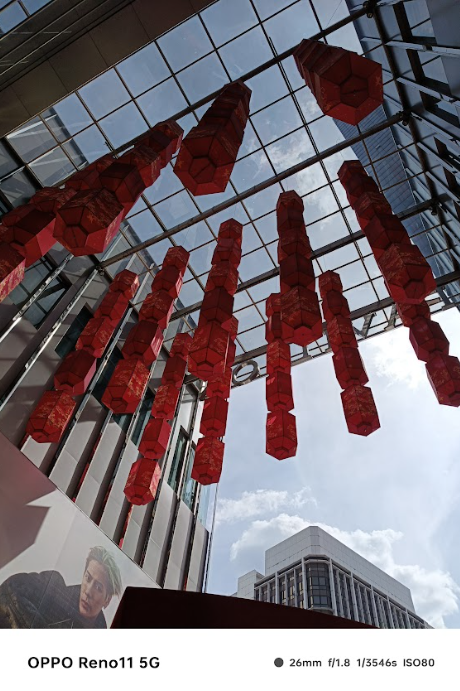
Impressive
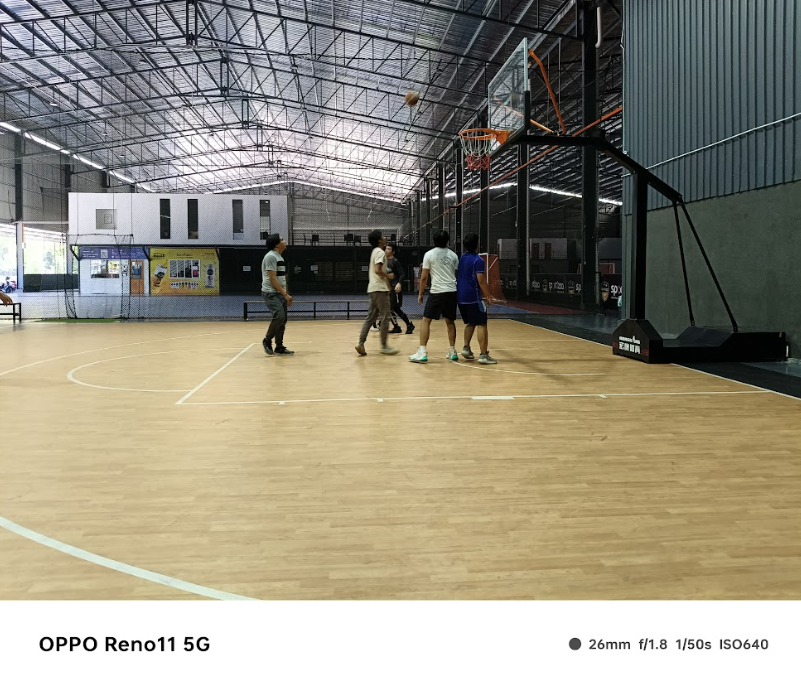
The camera quality is quite consistent
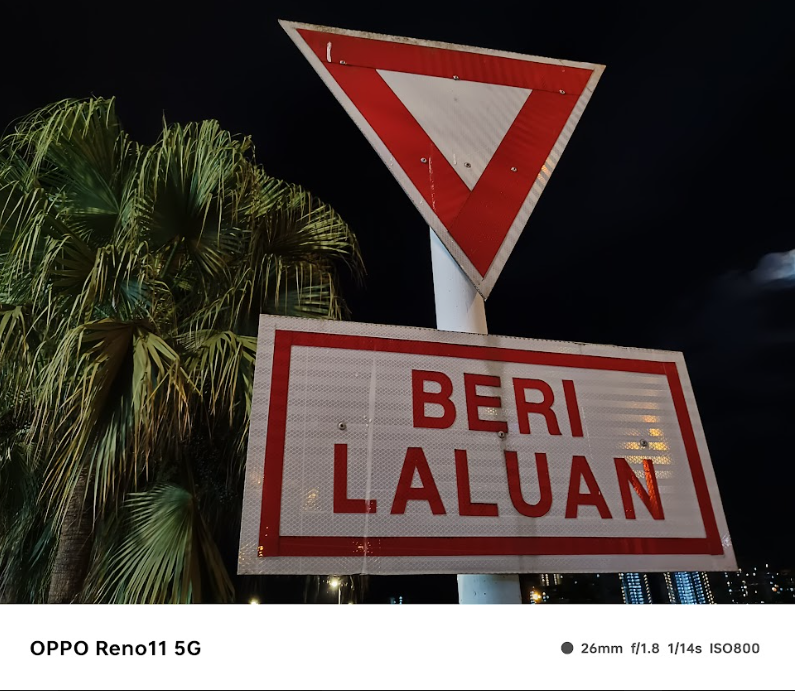
Even during night-time, the camera did well to capture the colours
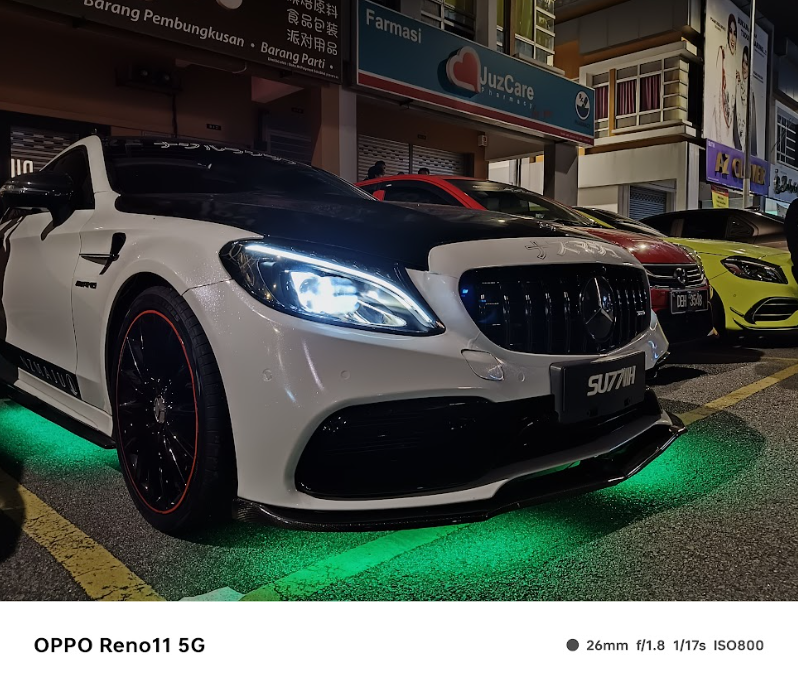
Sexy
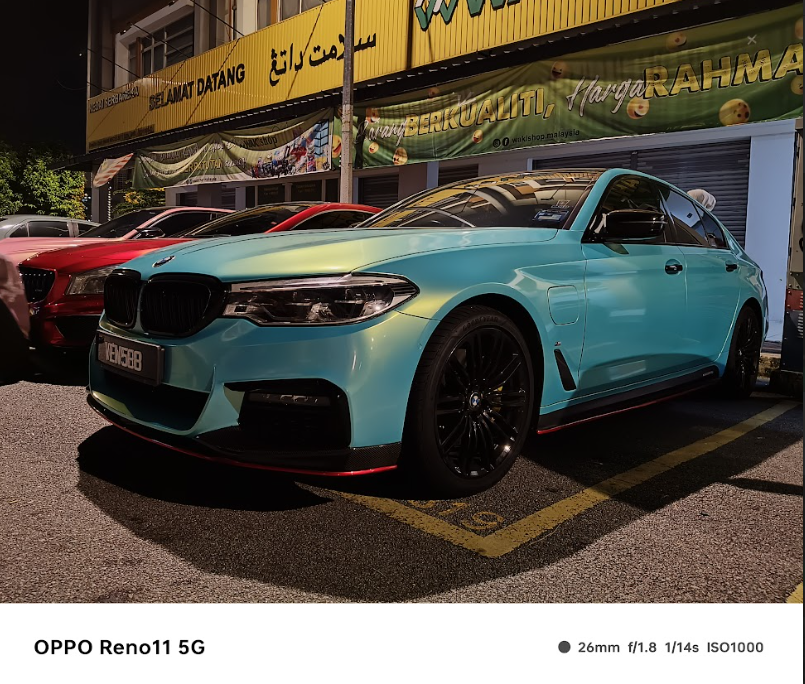
We love how the colours pop out
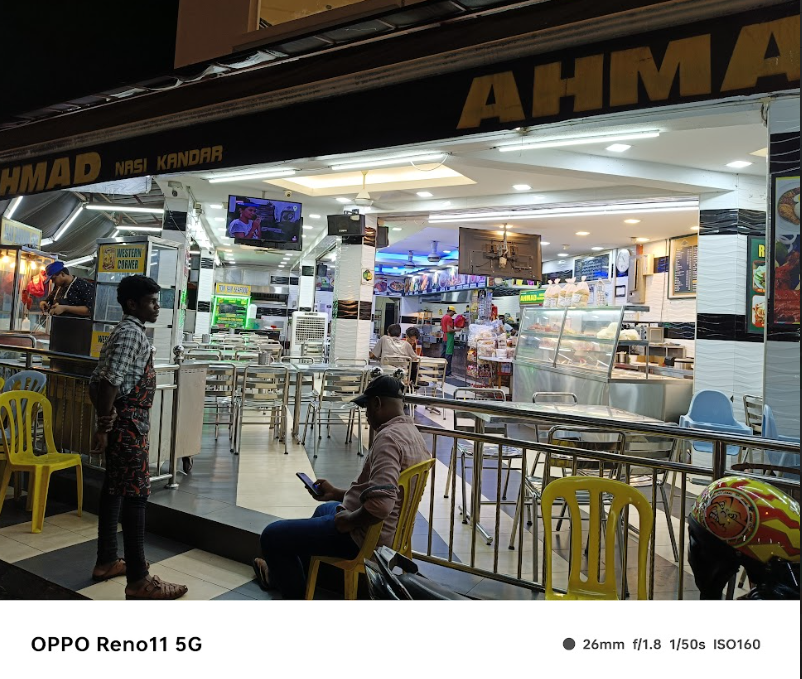
Noise looks more obvious at night, but that's expected under low light
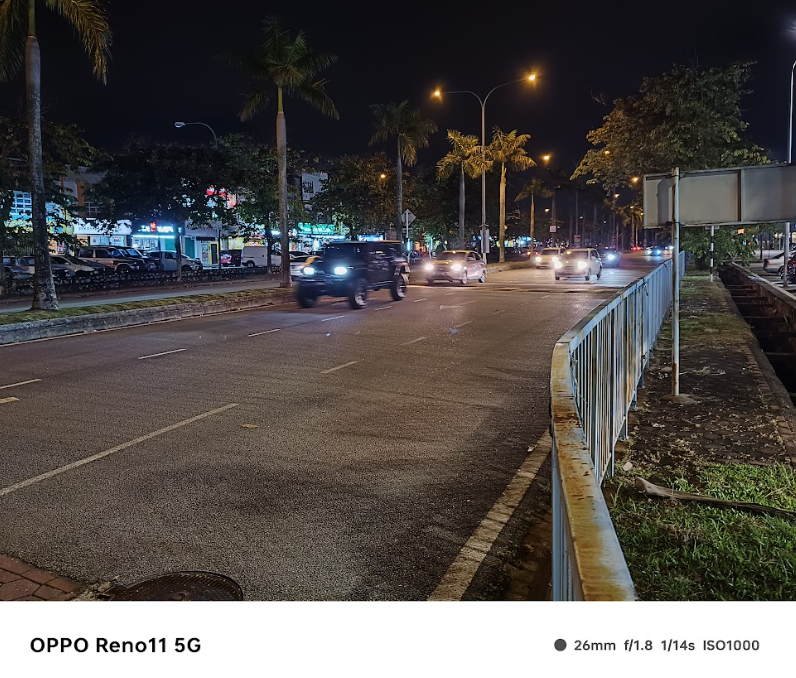
The camera struggles to capture images of moving objects
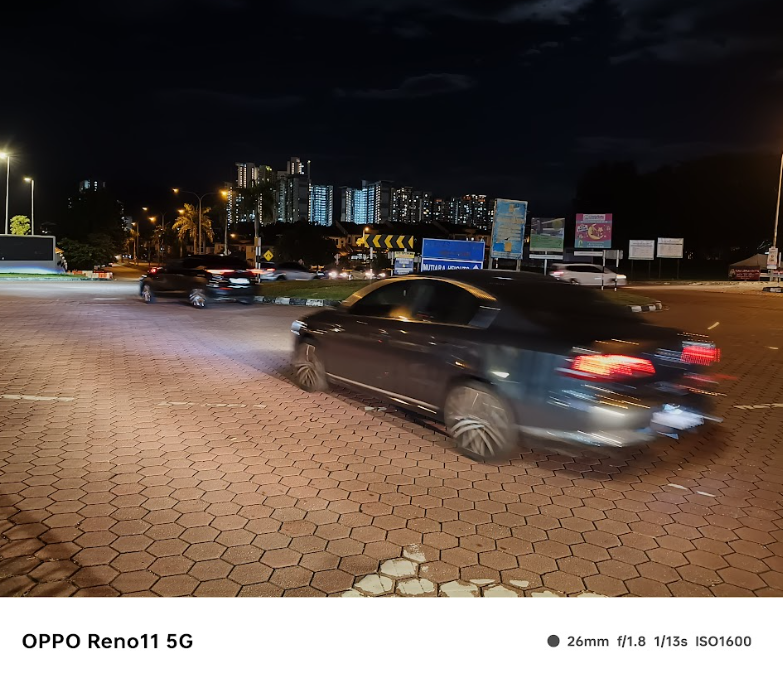
Expected noises captured from moving vehicles

On the other hand, the camera did well in capturing images of stationary objects
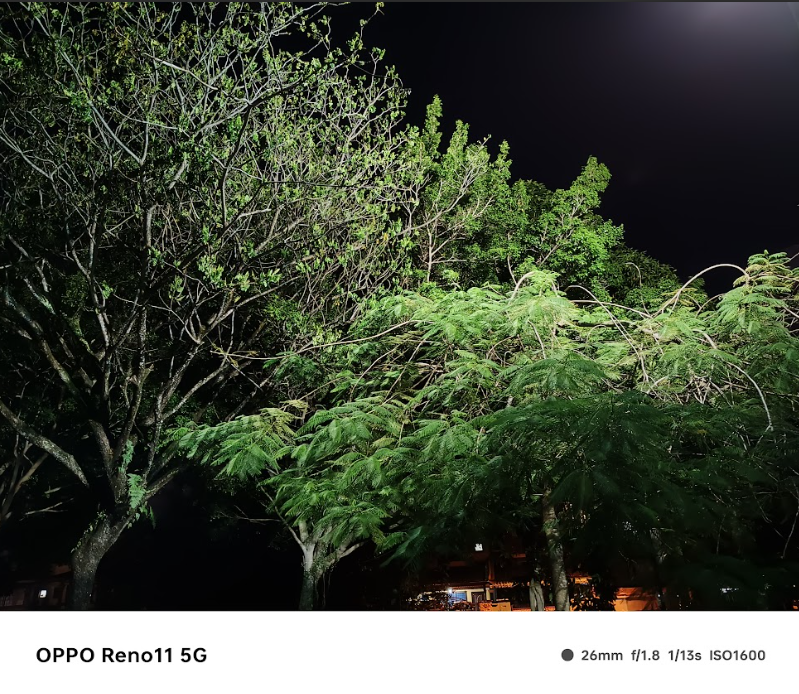
Clear shots of trees at night, perfect for Paranormal seekers
Conclusion - It's OK, but you could get better
It's a bit difficult for us to dish out the verdict for this phone. It has the qualities we loved from the Pro variant but at the expense of inferior hardware. To put it into perspective, we could list two other phones in the same price range with better performance and specs.
For instance, the Xiaomi 13T features the MediaTek 8200 SoC with 8GB RAM and 256GB storage. Sure, it has less RAM compared to the Reno 11. But what it lacks in RAM is made up with the newer gen of SoC and better battery life. This phone should cost you around RM1799 to RM1999.
On the other hand, you can opt for ASUS ROG Phone 6. The phone might be a bit old, but don't let that discourage you. For a price of RM2299, you will be getting a phone with Snapdragon 8+ Gen 1 SoC, 12GB RAM, 256GB storage and Adreno 730 GPU. It's slightly pricey compared to the Reno 11, but it should offer you good value for money.
Ultimately, we feel that you should pass on this phone. But only by a small margin.
What are your thoughts about this review? Stay tuned for more reviews like this at TechNave!




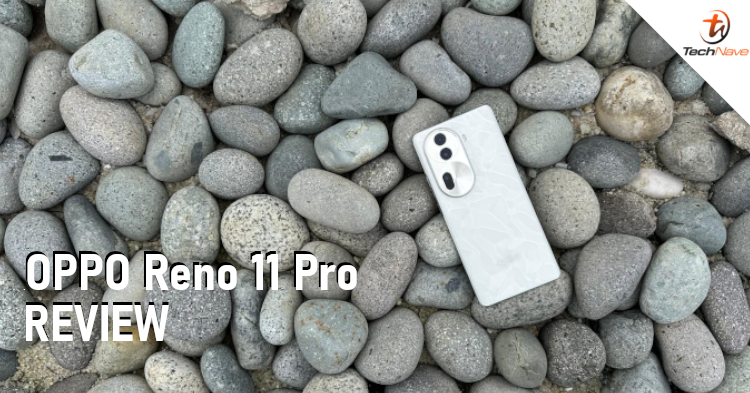




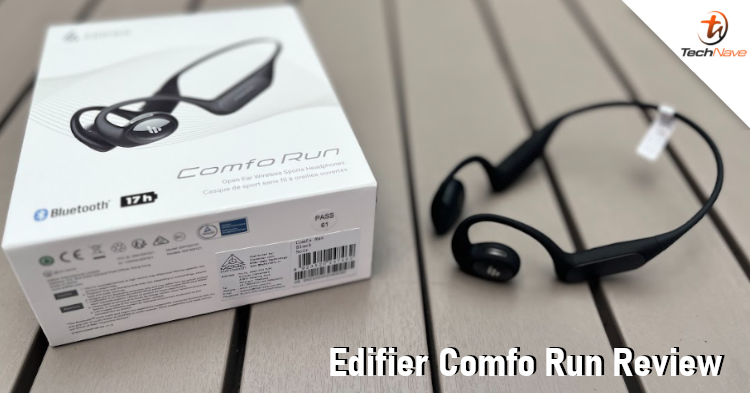
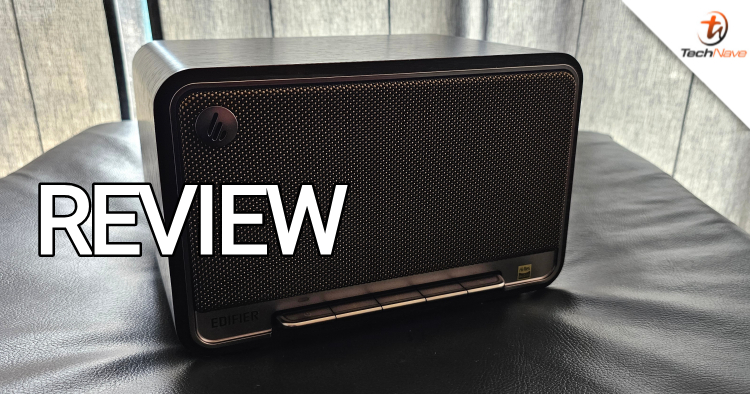
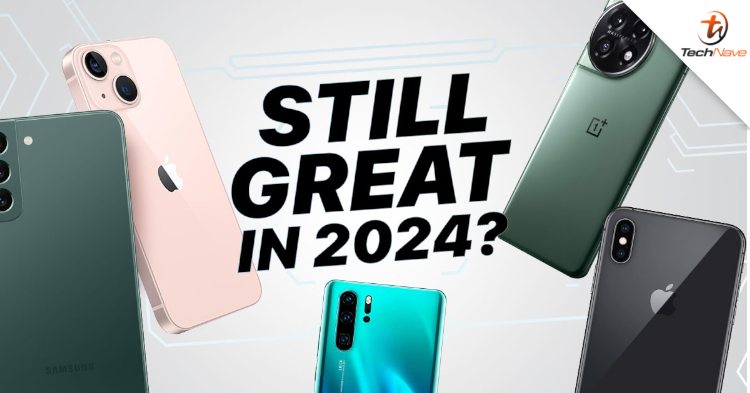
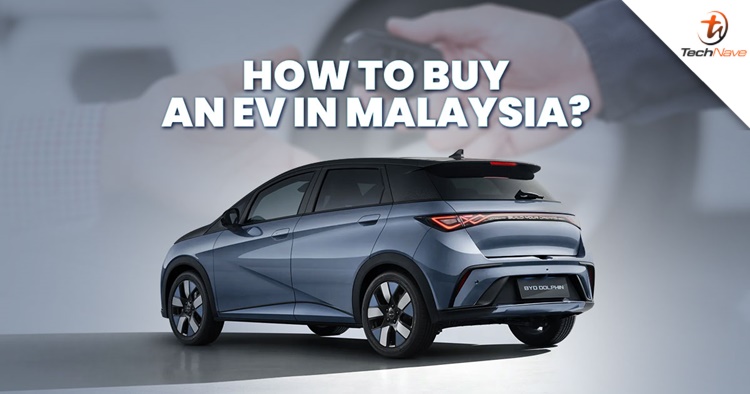


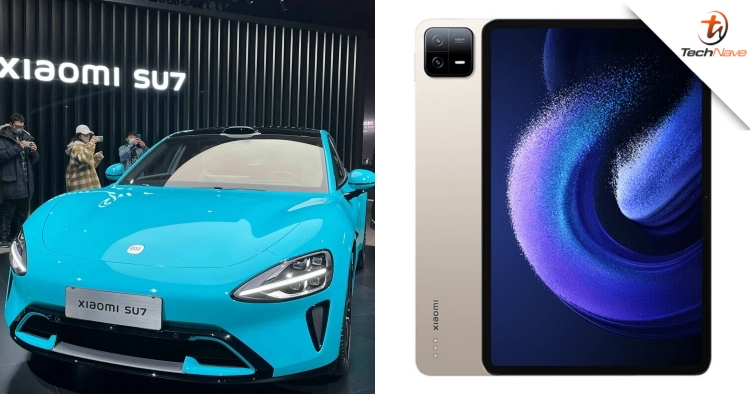
COMMENTS